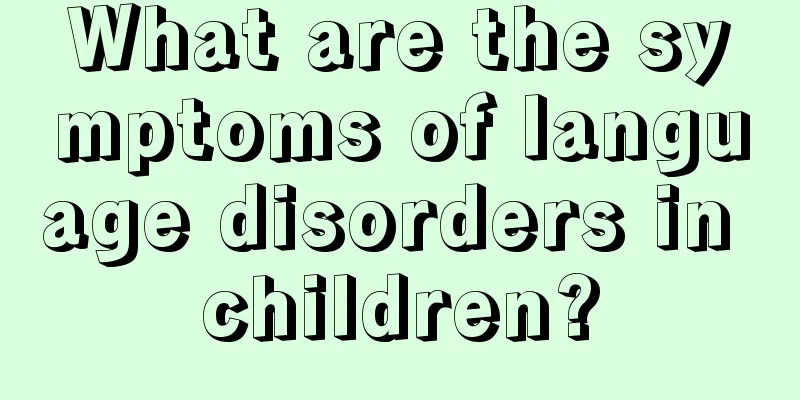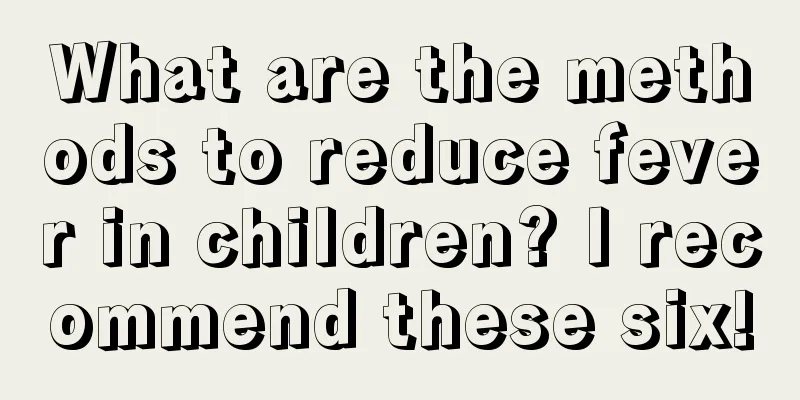What are the symptoms of language disorders in children?

|
If a child has problems with brain development, his or her language ability will be affected to a certain extent, which is medically called a language disorder. The symptoms of this disease are actually quite obvious, such as specific speech articulation disorder, expressive language disorder, etc., which is a situation where one wants to express something but is unable to do so. 1. Specific speech articulation disorder Refers to a specific speech development disorder characterized by the child's ability to use speech below the level expected for his or her mental age, but normal language skills. 1. Difficulty in pronunciation. Pronunciation errors are made when speaking, making it difficult for others to understand. The severity of the child's speech omissions, distortions, or substitutions exceeds the range of variation among children of the same age. 2. Normal language comprehension and expression ability (verbal IQ, performance IQ and total IQ of Wechsler Children's Intelligence Test are all ≥ 70); 3. Not due to hearing impairment, oral disease, neurological disease, mental retardation, or pervasive developmental disorder. 2. Expressive language disorder Refers to a specific speech and language development disorder in which the child's expressive oral language ability is significantly lower than the level expected for his or her mental age, but language comprehension is within the normal range and pronunciation abnormalities may or may not be present. 1. The ability to express verbally is significantly lower than that of the child's actual age. At the age of two, he could not speak a single word, and at the age of three, he could not speak a short sentence of two words. When he was a little older, he still had a small vocabulary, spoke too short sentences, and made grammatical errors, etc. The severity of the problem exceeded the variation range of children of the same age. 2. Normal language comprehension ability; 3. Normal total IQ in standardized tests (operational IQ and total IQ of Wechsler Intelligence Test for Children ≥ 70); 4. Not due to hearing impairment, oral disease, neurological disease, mental retardation, or pervasive developmental disorder. |
<<: What is the correct way to take medicine for otitis media in children?
>>: What are some tips for treating a baby’s severe cough?
Recommend
How to make banana baby food
When babies grow to a certain stage, they need to...
What to do if premature babies eat less milk
Premature birth is a common phenomenon in life. W...
37-month-old baby development indicators
Generally speaking, the development standards of ...
What to do if your child has neck pain
In daily life, parents should pay close attention...
What tests are needed for children with ADHD?
When it comes to ADHD, many parents think that it...
What's wrong with the baby's labia and the two sides?
In every family, the baby is the center of the fa...
Can children's atopic dermatitis be cured?
For some parents, if their children suffer from a...
Why do children keep blinking?
If a child keeps blinking, parents must pay atten...
The child has not had a bowel movement for three days
For most parents, their children's health is ...
What are the best ways to reduce fever in children?
If a child has a fever, parents will definitely b...
How to deal with baby's skin suppuration
Most babies are very naughty. Parents must pay at...
How to get your child to fall asleep quickly
Babies sleep most of their daily time, but some n...
Children with bronchiolitis, parents should know these treatments
If bronchitis occurs in a child, parents must pay...
Can children eat blueberries?
Blueberries have high nutritional value and are r...
Tips to help your child fall asleep quickly
Nowadays, due to the pressure of life, coupled wi...









